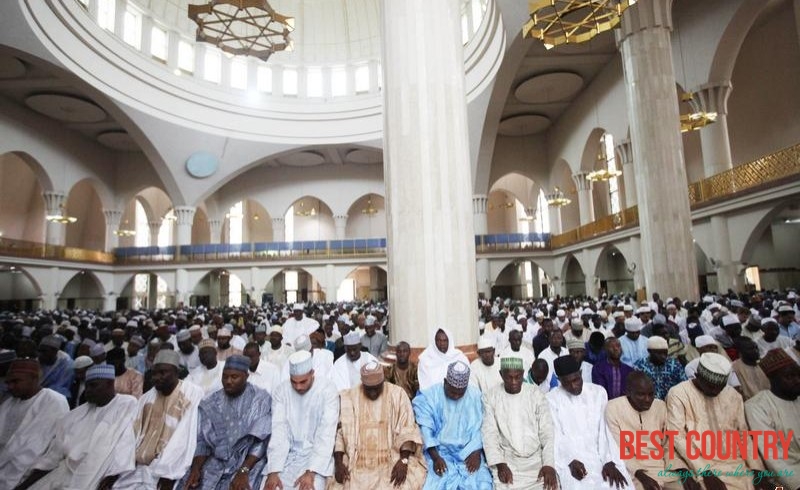Religion in Guinea

Islam
Guinean Muslims are generally Sunni of Maliki school of jurisprudence, influenced with Sufism,with many Ahmadiyya;
There are relatively few Shi'a in Guinea.
Christianity
Christian groups include Roman Catholics, Anglicans, Baptists, Seventh-day Adventists, and other Evangelical groups. Jehovah's Witnesses are active in the country and recognized by the Government.
Other religions
There is a small Baha'i community. There are small numbers of Hindus, Buddhists, and traditional Chinese religious groups among the expatriate community.
Traditional beliefs
A Sande society helmet mask (1940-1965). The Sande society is a secret women's association.
The Sande society is a is a secret women's association found in Liberia, Sierra Leone and Guinea that initiates girls into adulthood, confers fertility, instills notions of morality and proper sexual comportment, and maintains an interest in the well-being of its members throughout their lives.
In addition, Sande champions women's social and political interests and promotes their solidarity vis-a-vis the Poro society, a complementary institution for men. Today this social institution is found among the Bassa, Gola, Kissi, Kpelle, Loma, People and Vai of Liberia.
Throughout the region, the complementarity of men's and women's gender roles – evident in such diverse activities as farming, cloth production, and musical performances – reach full expression.
The women's Sande and men's Poro associations alternate political and ritual control of "the land" (a concept embracing the natural and supernatural worlds) for periods of three and four years respectively. During Sande's sovereignty, all signs of the men's society are banished.
At the end of this three-year period, the Sande leadership "turns over the land" to its counterparts in the Poro Society for another four years, and after a rest period the ritual cycle begins anew.
The alternating three- and four-year initiation cycles for women and men respectively are one example of the widespread use of the numbers 3 and 4 to signify the gender of people, places and events; together the numbers equal seven, a sacred number throughout the region.